-
 +31 +6
+31 +6Cognitive trainings using video games might increase subjective well-being of individuals with depression
A recent study found that "Super Mario Odyssey" reduced depression symptoms more than cognitive training or standard treatments, with participants showing higher motivation and selective memory improvements.
-
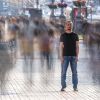 +42 +5
+42 +5Five takeaways on urbanicity and depression research
Colin Xu and Robert DeRubeis discuss a recently published meta-analysis of the effects of urbanicity on depression in developing and developed countries.
-
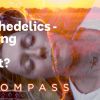 +25 +5
+25 +5Using psychedelics to treat depression and trauma
Using psychedelics to treat depression and trauma has just become legal in Australia. Offering hope to many, it’s not without risk. While many report life-changing benefits, others do not, and many scientists in the field fear the move is premature.
-
 +25 +4
+25 +4Obesity might be one of the causes of depression, study suggests
A meta-analytic review of previous studies indicates that obese individuals have an increased risk of depression and that this relationship isn't just correlational -- obesity might be one of the causes of depression. The researchers argue that the increased occurrence of depression in the population in recent decades might be at least partly due to the increase in obesity. The study was published in the Journal of Psychiatric Research. ...
-
 +24 +2
+24 +2A vicious cycle of sedentary behavior and depression may occur within romantic relationships
A new study published in Mental Health and Physical Activity finds that when one partner is depressed, the other increases their sedentary behaviors and vice versa. This research reveals the potential negative impact partners can have on one another. Understanding this can help clinicians and individuals take steps to prevent the vicious cycle of depression and sedentary behaviors in partnerships.
-
 +22 +2
+22 +2Impacts of YouTube on loneliness and mental health
Frequent users of YouTube have higher levels of loneliness, anxiety, and depression according to researchers from the Australian Institute for Suicide Research and Prevention (AISRAP).
-
 +3 +1
+3 +1The truth about teens, social media and the mental health crisis
A striking decline in teen mental health has coincided with the rise of smartphones and social media. Is social media causing the mental health challenges? Finally, research can answer that question.
-
 +9 +4
+9 +4Review of 1,039 studies indicates exercise can be more effective than counselling or medication for depression
A study published in the British Journal of Sports Medicine reviewed more than 1,000 research trials examining the effects of physical activity on depression, anxiety, and psychological distress. It showed exercise is an effective way to treat mental health issues – and can be even more effective than medication or counselling.
-
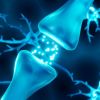 +13 +4
+13 +4Psychedelics may treat depression by invading brain cells
Psychedelic drugs have shown promise as therapies for hard-to-treat depression. Now, scientists have a potential explanation for why: The drugs may be able to slip through the outer membranes of brain cells and essentially flip switches inside the cells that other depression treatments can't.
-
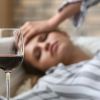 +17 +5
+17 +5Study identifies factors that could make people more prone to depressive symptoms during hangovers
New research provides insight into the underlying psychological factors related to depressive symptoms during alcohol hangovers. The findings, which appear in the journal Addictive Behaviors, indicate that both emotion dysregulation and repetitive negative thinking play a key role.
-
 +24 +3
+24 +3Fans shocked by TikToker’s wild SpongeBob revelation: ‘Now it makes sense’
In the words of SpongeBob SquarePants, it’s time to use your imagination. One user on TikTok is sharing a theory about the characters on Nickelodeon’s hit cartoon “SpongeBob SquarePants” — and viewers are shook.
-
 +12 +2
+12 +2Association between work stress and depression differs across cultures
A study of data on the association between work stress and depression from 100 world countries revealed that this association depends on certain characteristics of the national culture. While this link was stronger in cultures with pronounced power distance and individualism, it was weaker in cultures with pronounced masculinity, uncertainty avoidance, and long-term orientation. The study was published in Cross-Cultural Research.
-
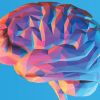 +20 +4
+20 +4Researchers explore the relationship between childhood trauma, gray matter, and social anhedonia
A new study published in Brain Imaging and Behavior searches for the potential relationship between childhood trauma, social anhedonia, and brain gray matter volume. The research found individuals with moderate to severe childhood trauma experienced higher levels of social anhedonia and exhibited differences in gray matter.
-
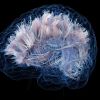 +19 +4
+19 +4New study finds alterations in the brain's white matter in children with depression
A 17-year neuroimaging study of persons diagnosed with depression as children found differences in white matter in the dorsal cingulum bundle region of the brain compared to persons without depression of similar age. The emergence of these differences was first detected in adolescence. The study was published in Depression and Anxiety.
-
 +14 +2
+14 +2Perfectionistic concerns are similarly apparent in patients with depression and obsessive-compulsive disorder
Mental illness can be associated with many dysfunctional beliefs or mental processes. A study published in PLOS One suggests that perfectionism is one such symptom that is especially prevalent in people with obsessive-compulsive disorder and in people with major depressive disorder.
-
 +3 +1
+3 +1Is Sending a Christmas Card Good for Your Health?
Our study showed a correlation between sending Christmas cards and depression.
-
 +15 +3
+15 +3Dissociative symptoms are common among individuals with depression, study finds
“Dissociating” has become an internet buzzword, but what does it mean and how common is it really? A study published in the Journal of Psychiatric Research suggests that this mental disconnect may be very common among people with depressive symptoms.
-
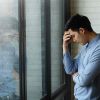 +4 +1
+4 +1New study undermines the theory that depressed people are just more realistic
Are depressed people simply more realistic in judging how much they control their lives, while others view the world through rose-colored lenses, living under the illusion that they have more control than they do? That’s the general idea behind “depressive realism,” a theory that has held sway in science and popular culture for more than four decades.
-
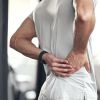 +23 +1
+23 +1Two fifths of people have chronic pain by their 40s, with consequences for later life
Chronic pain is widespread among those in their mid-40s in Britain, with those who experience it more likely to report pain, poor health - including COVID-19 infection - and joblessness later in life, according to a new study by researchers at UCL and Dartmouth College, US.
-
 +22 +1
+22 +1Exercise can reduce feelings of hopelessness among patients in suicide crisis, pilot study finds
A new study published in the Journal of Psychiatric Research found preliminary evidence that exercise can alleviate distress among patients in suicide crisis.
Submit a link
Start a discussion




















